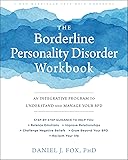All Categories


I Hate You--Don't Leave Me: Third Edition: Understanding the Borderline Personality
Share Tweet
Get it between 2025-10-21 to 2025-10-28. Additional 3 business days for provincial shipping.
*Price and Stocks may change without prior notice
*Packaging of actual item may differ from photo shown
- Electrical items MAY be 110 volts.
- 7 Day Return Policy
- All products are genuine and original
- Cash On Delivery/Cash Upon Pickup Available








About I Hate You--Don't Leave Me: Third
The revised and expanded third edition of the bestselling guide to understanding borderline personality disorder—with advice for communicating with and helping the borderline individuals in your life. After more than three decades as the essential guide to borderline personality disorder (BPD), the third edition of I Hate You—Don’t Leave Me now reflects the most up-to-date research that has opened doors to the neurobiological, genetic, and developmental roots of the disorder, as well as connections between BPD and substance abuse, sexual abuse, post-traumatic stress syndrome, ADHD, and eating disorders. Both pharmacological and psychotherapeutic advancements point to real hope for success in the treatment and understanding of BPD. This expanded and revised edition is an invaluable resource for those diagnosed with BPD and their family, friends, and colleagues, as well as professionals and students in the field, and the practical tools and advice are easy to understand and use in your day-to-day interactions with the borderline individuals in your life.





























